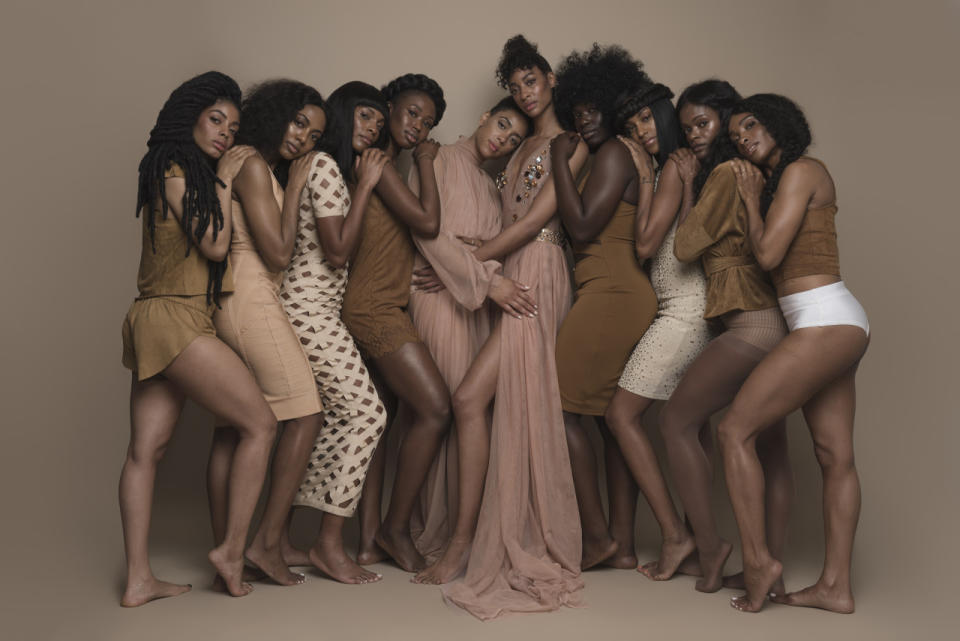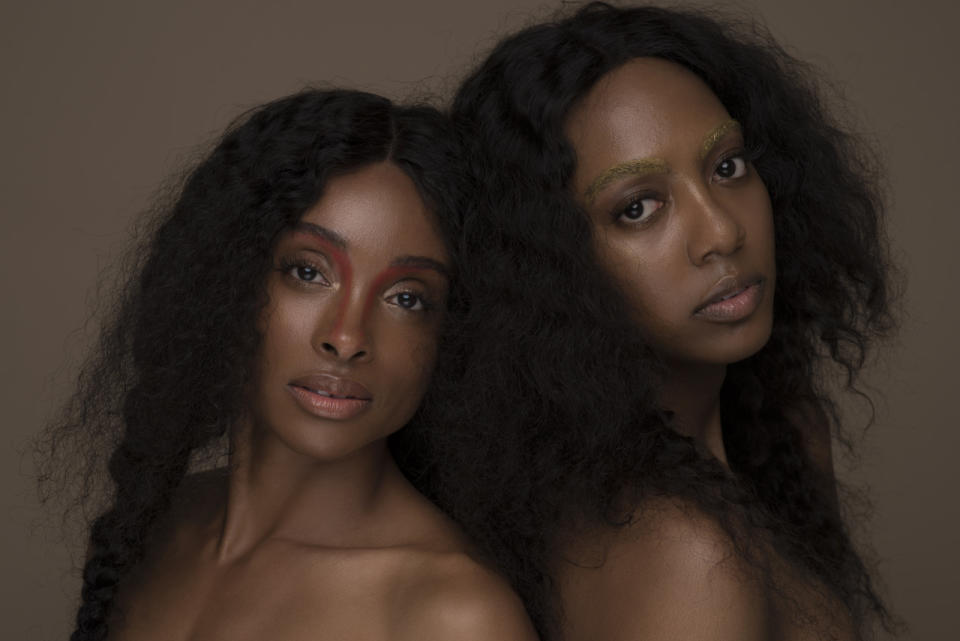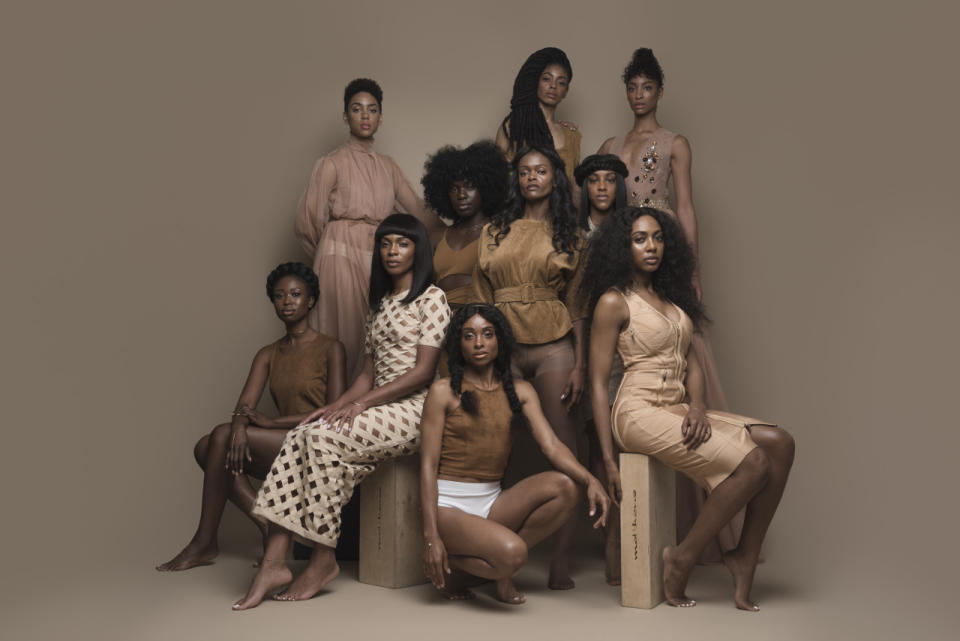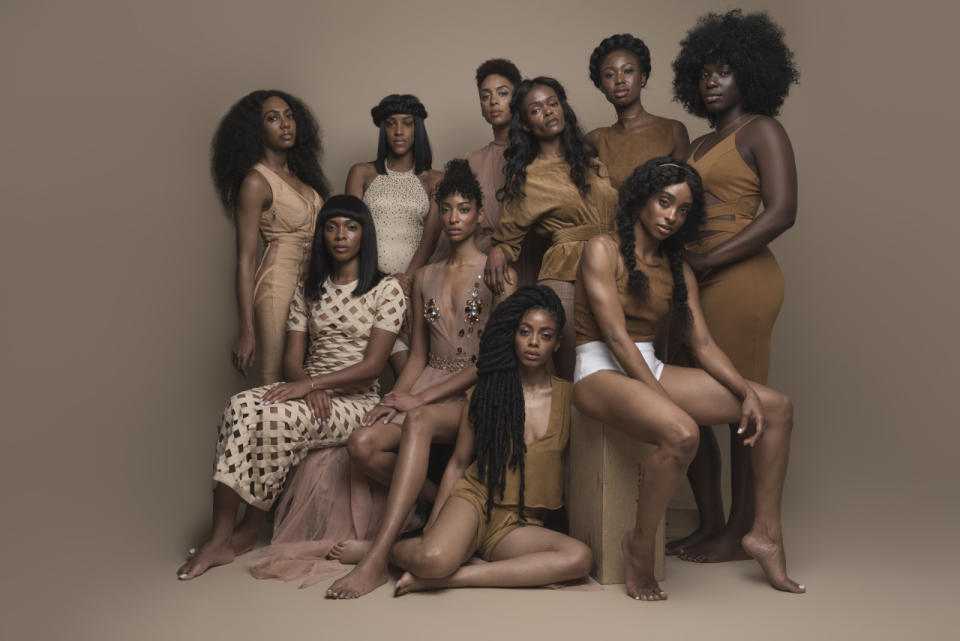The ‘Colored’ Girl Campaign: Meet the Women Behind This Self-Love Movement
The psychological effects of colorism among black women are deeply rooted.
Throughout history, women of color have been devalued because of the kinky texture of their hair, fullness of their noses and lips, and richness of their complexions. And societal pressures within and outside the black community have contributed to a divide between light- and dark-skinned women of color.
“I’ll never forget the day I was formally introduced to colorism,” wrote Kahlana Barfield in a heartfelt personal essay published in the April 2016 issue of InStyle. “I was in the seventh grade. I thought an upperclassman I had a crush on was paying me a compliment. ‘You’re pretty,’ he said. Before I could fix my lips to say thank you, he finished his sentence: ‘for a dark-skinned girl.’ I’d never felt so humiliated and degraded in my life. Crazy thing is, the guy who made the comment was darker than me. I couldn’t understand it. Why couldn’t I just be pretty? Why did I have to be ‘pretty — for a dark-skinned girl’? I was on the honor roll. Captain of the cheerleading team. And none of it seemed to matter. He couldn’t see past my complexion.”
Barfield’s essay, “Pretty for a Dark-Skinned Girl,” was shared over 10,000 times, and goes on to recount how she overcame her insecurities.
And now, two women are carrying on the torch in this self-love movement.

The “Colored” Girl Campaign. (Photo: Joey Rosado)
The “Colored” Girl Campaign is the brainchild of wardrobe stylist Tori Elizabeth and singer/songwriter/voice actor Victory Jones. Ten beautiful black women sporting neutral-toned garments and natural hairstyles were photographed by Joey Rosado. Elizabeth says she sees the campaign as “a way for us to express ourselves as black women, by highlighting and celebrating our natural features that are oftentimes criticized in the media and black community.”
Christina Bright, a 28-year-old model featured in the campaign, says she felt like she “didn’t truly belong” growing up as a light-skinned woman of color. “I felt too ‘white’ when I was with my black family and my hair was too ‘nappy’ when I was with my Puerto Rican family,” Bright told Yahoo Beauty. “I experienced a lot of comments being made from family members. I’d like to believe that none of them were made to intentionally make me feel bad. But when you’re a child trying to find your identity, insensitive comments can really hurt you.”
Yahoo Beauty interviewed co-founders Elizabeth and Jones about bringing their vision to fruition, prejudices they’ve experienced because of the color of their skin, and what black beauty means to them. Read on for their candid responses and to see the breathtaking photos from this campaign.
Yahoo Beauty: What was the inspiration for the “Colored” Girl Campaign?
Jones: The inspiration for the project started as a conversation Tori [Elizabeth] and I had in my living room during a blizzard last winter. We are best friends and both very artistic, creative, and always talked about doing a project together. But this conversation started when Tori asked the questions, “Who am I? … Who are we?” We decided we wanted to do a project that showcased the complexities of our identity, and that conversation turned into a discussion, then a debate (we truly are like sisters), which led to the inception of TCG. A brand built for women, by women, to showcase and empower women. We figured: What better way to launch the brand than with our own unique perspective as brown girls in this world? We wanted to tell a story, visually, of the beauty and power of black women like us.
Yahoo Beauty: How did you select the women to be a part of the project?
Elizabeth: Each woman was hand-picked via social media. We were looking for ladies with distinct features, facial structure, body type, hair texture, as well as their personalities, vibe, and personal brand.

Victory Jones and Tori Elizabeth, co-founders of The “Colored” Girl Campaign. (Photo: Joey Rosado)
Yahoo Beauty: What is the biggest misconception you think people have about black women with dark and light skin tones?
Elizabeth: I think the biggest misconception is that one woman is “better” than the other, solely due to the color of skin she was born with. This has been ingrained in many of our minds from our family, media, and societal influences.
Jones: Biggest clichéd misconception? That lighter is somehow more beautiful and darker is not. Which is a farce! Brown and black girls of all shades possess their own type of authentic beauty and power! Actually, all women. Period.
Yahoo Beauty: Have you experienced colorism within your family, at school, or work?
Elizabeth: Growing up, I never understood how my mother was fair, I was brown, and my brother was a lot darker skin tone. At an early age, I quickly realized that I was treated better from my father’s side than my brother was when we were kids, due to him being a darker complexion. In all honesty, my father actually only dated women who were lighter-skinned, with “long, good hair,” in hopes that his children would look the same. I find this to be very common amongst the West Indian or Caribbean communities.
Jones: Luckily for me, my family is very mixed (Black, White, Indian, Asian — all of Jamaican descent, though).The commonality of our island heritage bonds us strongly. However, there is still the slight vein of certain things being seen as more favorable over others with certain folks. Like certain family members joking about the darkness of others, or harping on the fact that some people’s hair was kinkier than others.

The “Colored” Girl Campaign. (Photo: Joey Rosado)
Yahoo Beauty: How did you grow to love the skin you’re in? Is this something you still struggle with today?
Elizabeth: My mother and godmother have always told me that I was beautiful since I was a little girl. Hearing that at a young age stuck with me. Therefore, even on my “worst day,” I still feel beautiful, because at my core I am still me. However, like all women, I do have my insecurities. I do struggle with having stretch marks on the sides of my hips. I have always been slim-framed, so it was hard for me to accept, and there are still days that I am not the most confident with them.
Jones: I was never raised to see the things I was given at birth as a passport or hindrance in this life. Never. My parents made sure of that. I was made aware of the things that really mattered, like my energy, my aptitude, my attitude, my purpose, my usefulness, service to others, etc. … at a very young age. We live in a world that reminds us at every turn that we are not good enough; that reminds of the false “lack” within us and that we need to always improve, buy, or change something about ourselves to feel, be, live better. And it’s simply not true. We shouldn’t be so consumed by it! It’s taken me a long time to learn that. In fact, I am still learning to love the skin I’m in!
Yahoo Beauty: What does black beauty mean to you?
Jones: It means a reclamation and affirmation of power. A celebration of the things we are taught not to love and nurture: our true, authentic selves! Loving the skin we’re in, and being bold enough to be unapologetic about it. Because why should we have to be? It’s amazing!
Yahoo Beauty: What’s next for The “C” Girl Campaign?
Elizabeth: Due to the outpouring of positivity for our campaign, we are looking to expand on the “Colored” Girl campaign by bringing awareness to more social, political, and controversial aspects of women.

The “Colored” Girl Campaign. (Photo: Joey Rosado)
This interview has been condensed and edited for clarity.
Let’s keep in touch! Follow Yahoo Beauty on Facebook, Twitter, Instagram, and Pinterest.